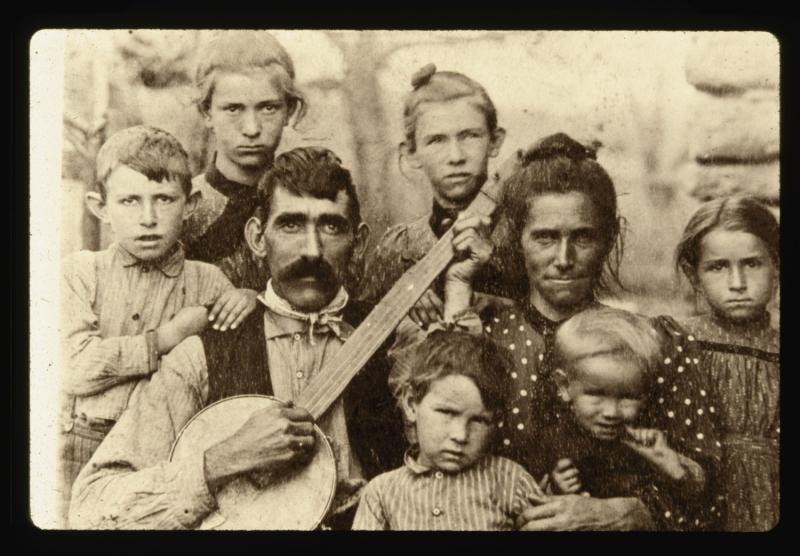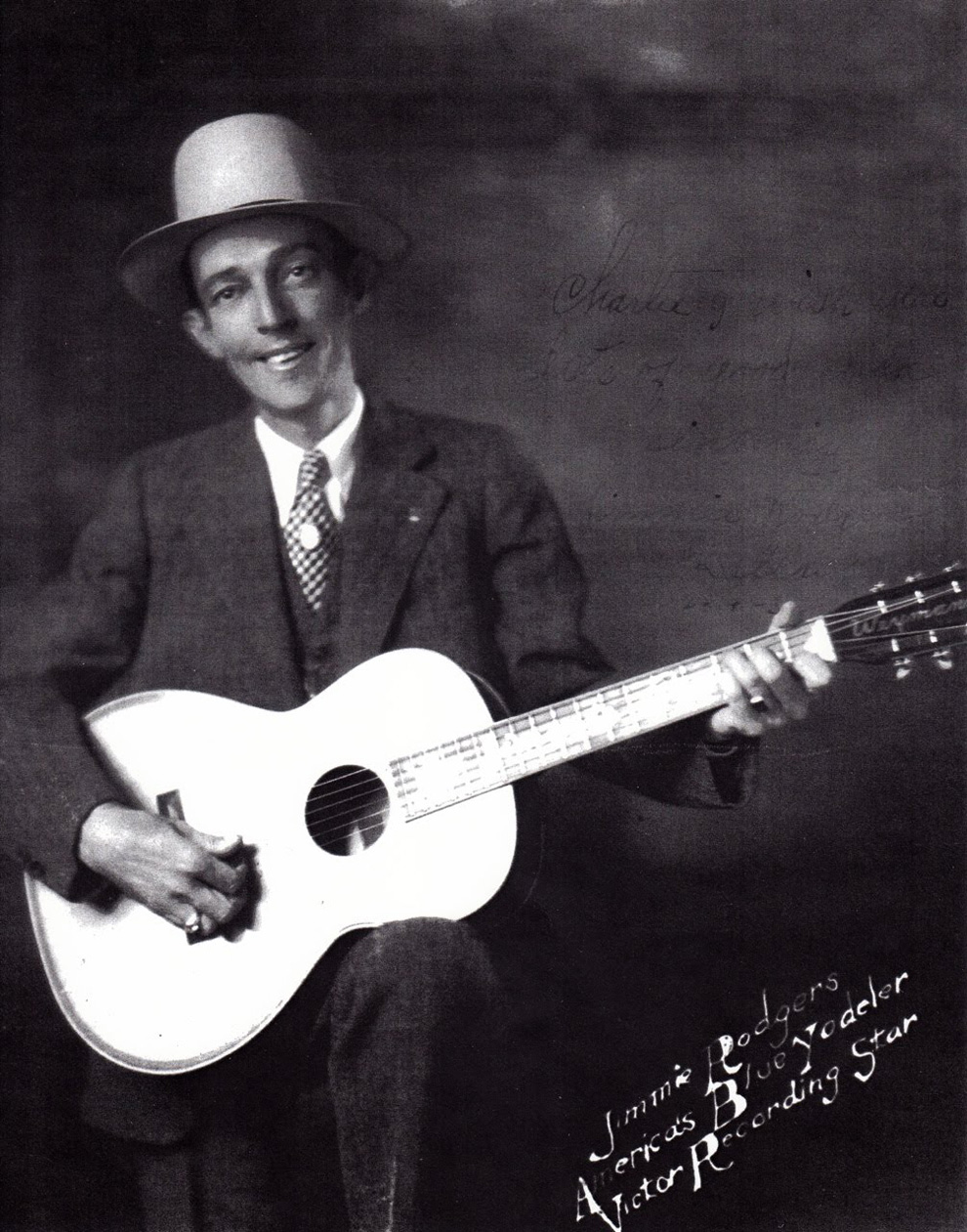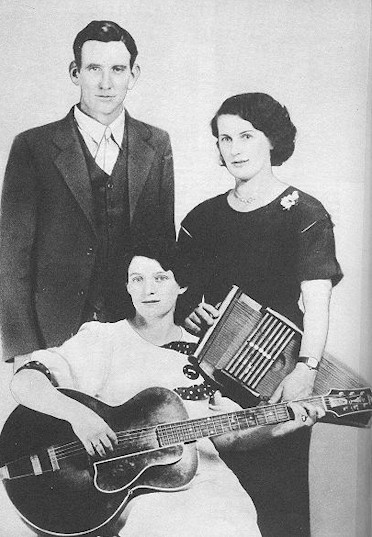Country Music by Ken Burns, BBC Four review - grand history of fiddlers on the hoof | reviews, news & interviews
Country Music by Ken Burns, BBC Four review - grand history of fiddlers on the hoof
Country Music by Ken Burns, BBC Four review - grand history of fiddlers on the hoof
America's great documentarian takes to the country road to explore a musical melting pot

Ken Burns is the closest American television has to David Attenborough. They may swim in different seas, but they both have an old-school commitment to an ethos that will be missed when it’s gone – the idea that television is a place to communicate information with a sober sense of wonder. Burns’s field is American history in all its breadth and depth. Last time round it was a lapidary decalogue of documentaries about the Vietnam War.
The country music in the opening episode was actually by Fiddlin’ John Carson, the Carter Family and Jimmie Rodgers (pictured below right), and took in the invention of the radio and the phonograph which, by the early 1930s, had turned all three into household names. At that point there was no such thing as country music per se. When a publisher asking one act for a handle was told, “We’re nothing but a bunch of hill billies,” the label stuck. Dolly Parton was firm that, wrongly used, the epithet is “almost like a racist remark. You’re not allowed to say it,” she insisted, “unless you know what you’re talking about.”
 Country musicians were not always so sensitive. In the 1920s Carson worked in an Atlanta textile mill by day, and by night fiddled at any gathering that would have him – Confederate reunions, communist rallies, gatherings of the Ku Klux Klan. Rodgers, who invented the surreal concept of the yodelling cowboy, was a pioneer in the field of country’s dodgy gender politics. “I can get more women than a passenger train can haul,” he boasted in “Blue Yodel No 1 (T for Texas)”. In the next verse he planned to “shoot poor Thelma just to see her jump and fall”. If Rodgers was a Mississippi hobo, the Carter Family from Virginia (pictured below left) sang of hearth and home. The common denominator that united Rodgers and the Carters was guitars and poverty, and the fact that they both answered the summons to record their songs in Bristol, Tennessee in 1927 for producer Ralph Peer of the Victor Talking Machine Company.
Country musicians were not always so sensitive. In the 1920s Carson worked in an Atlanta textile mill by day, and by night fiddled at any gathering that would have him – Confederate reunions, communist rallies, gatherings of the Ku Klux Klan. Rodgers, who invented the surreal concept of the yodelling cowboy, was a pioneer in the field of country’s dodgy gender politics. “I can get more women than a passenger train can haul,” he boasted in “Blue Yodel No 1 (T for Texas)”. In the next verse he planned to “shoot poor Thelma just to see her jump and fall”. If Rodgers was a Mississippi hobo, the Carter Family from Virginia (pictured below left) sang of hearth and home. The common denominator that united Rodgers and the Carters was guitars and poverty, and the fact that they both answered the summons to record their songs in Bristol, Tennessee in 1927 for producer Ralph Peer of the Victor Talking Machine Company.
The Bristol Sessions were the Year Zero for country that enabled musicians to start taking home royalties. Rodgers squandered his on fancy cars and guitars and died at 35. The Carter Family spawned a dynasty whose many scions include Roseanne Cash. She spoke eloquently of those early recordings of songs which “were captured rather than written," she said. "They were in the hills like rock formations.”
 Burns and his colleagues are clearly seduced by the romance of country as a melting pot that created a genuine musical soup together influences – among them the African banjo, the Celtic fiddle and the Germanic polka. If you’re not already sold on this music, a multi-part series may feel like a long haul across the flatter sections of America. If you’ve curious about what the Grand Old Opry actually is, and why American radio stations are known by such impenetrable acronyms, this is a persuasive primer with all the usual Burns touches: Peter Coyote’s Old Testament narration, the slow pans across ancient archive photographs, the ravishingly detailed soundscape that brings the past into the present. As ever, Burns knows what he's talking about.
Burns and his colleagues are clearly seduced by the romance of country as a melting pot that created a genuine musical soup together influences – among them the African banjo, the Celtic fiddle and the Germanic polka. If you’re not already sold on this music, a multi-part series may feel like a long haul across the flatter sections of America. If you’ve curious about what the Grand Old Opry actually is, and why American radio stations are known by such impenetrable acronyms, this is a persuasive primer with all the usual Burns touches: Peter Coyote’s Old Testament narration, the slow pans across ancient archive photographs, the ravishingly detailed soundscape that brings the past into the present. As ever, Burns knows what he's talking about.
Country historians like Bill C Malone and Charles Bradley bring the flavour of an encyclopaedia entry, while a parade of celebrated musicians impart ornery cowboy-booted wisdom. Harlan Howard’s celebrated definition of country was cited here: three chords and the truth. But how about the Rodney Crowell’s? “It’s truth-telling,” he twinkled, “even when it’s a big fat lie.” All together now: oh-dell-lay-ee-eh, lay-ee oh, lay-ee.
Add comment
The future of Arts Journalism
You can stop theartsdesk.com closing!
We urgently need financing to survive. Our fundraising drive has thus far raised £49,000 but we need to reach £100,000 or we will be forced to close. Please contribute here: https://gofund.me/c3f6033d
And if you can forward this information to anyone who might assist, we’d be grateful.

Subscribe to theartsdesk.com
Thank you for continuing to read our work on theartsdesk.com. For unlimited access to every article in its entirety, including our archive of more than 15,000 pieces, we're asking for £5 per month or £40 per year. We feel it's a very good deal, and hope you do too.
To take a subscription now simply click here.
And if you're looking for that extra gift for a friend or family member, why not treat them to a theartsdesk.com gift subscription?
more TV
 The Narrow Road to the Deep North, BBC One review - love, death and hell on the Burma railway
Richard Flanagan's prize-winning novel becomes a gruelling TV series
The Narrow Road to the Deep North, BBC One review - love, death and hell on the Burma railway
Richard Flanagan's prize-winning novel becomes a gruelling TV series
 The Waterfront, Netflix review - fish, drugs and rock'n'roll
Kevin Williamson's Carolinas crime saga makes addictive viewing
The Waterfront, Netflix review - fish, drugs and rock'n'roll
Kevin Williamson's Carolinas crime saga makes addictive viewing
 theartsdesk Q&A: writer and actor Mark Gatiss on 'Bookish'
The multi-talented performer ponders storytelling, crime and retiring to run a bookshop
theartsdesk Q&A: writer and actor Mark Gatiss on 'Bookish'
The multi-talented performer ponders storytelling, crime and retiring to run a bookshop
 Ballard, Prime Video review - there's something rotten in the LAPD
Persuasive dramatisation of Michael Connelly's female detective
Ballard, Prime Video review - there's something rotten in the LAPD
Persuasive dramatisation of Michael Connelly's female detective
 Bookish, U&Alibi review - sleuthing and skulduggery in a bomb-battered London
Mark Gatiss's crime drama mixes period atmosphere with crafty clues
Bookish, U&Alibi review - sleuthing and skulduggery in a bomb-battered London
Mark Gatiss's crime drama mixes period atmosphere with crafty clues
 Too Much, Netflix - a romcom that's oversexed, and over here
Lena Dunham's new series presents an England it's often hard to recognise
Too Much, Netflix - a romcom that's oversexed, and over here
Lena Dunham's new series presents an England it's often hard to recognise
 Insomnia, Channel 5 review - a chronicle of deaths foretold
Sarah Pinborough's psychological thriller is cluttered but compelling
Insomnia, Channel 5 review - a chronicle of deaths foretold
Sarah Pinborough's psychological thriller is cluttered but compelling
 Live Aid at 40: When Rock'n'Roll Took on the World, BBC Two review - how Bob Geldof led pop's battle against Ethiopian famine
When wackily-dressed pop stars banded together to give a little help to the helpless
Live Aid at 40: When Rock'n'Roll Took on the World, BBC Two review - how Bob Geldof led pop's battle against Ethiopian famine
When wackily-dressed pop stars banded together to give a little help to the helpless
 Hill, Sky Documentaries review - how Damon Hill battled his demons
Alex Holmes's film is both documentary and psychological portrait
Hill, Sky Documentaries review - how Damon Hill battled his demons
Alex Holmes's film is both documentary and psychological portrait
 Outrageous, U&Drama review - skilfully-executed depiction of the notorious Mitford sisters
A crack cast, clever script and smart direction serve this story well
Outrageous, U&Drama review - skilfully-executed depiction of the notorious Mitford sisters
A crack cast, clever script and smart direction serve this story well
 Prost, BBC 4 review - life and times of the driver they called 'The Professor'
Alain Prost liked being world champion so much he did it four times
Prost, BBC 4 review - life and times of the driver they called 'The Professor'
Alain Prost liked being world champion so much he did it four times
 The Buccaneers, Apple TV+, Season 2 review - American adventuresses run riot in Cornwall
Second helping of frothy Edith Wharton adaptation
The Buccaneers, Apple TV+, Season 2 review - American adventuresses run riot in Cornwall
Second helping of frothy Edith Wharton adaptation

Comments
Really surprised that you do
I feel that this is probably